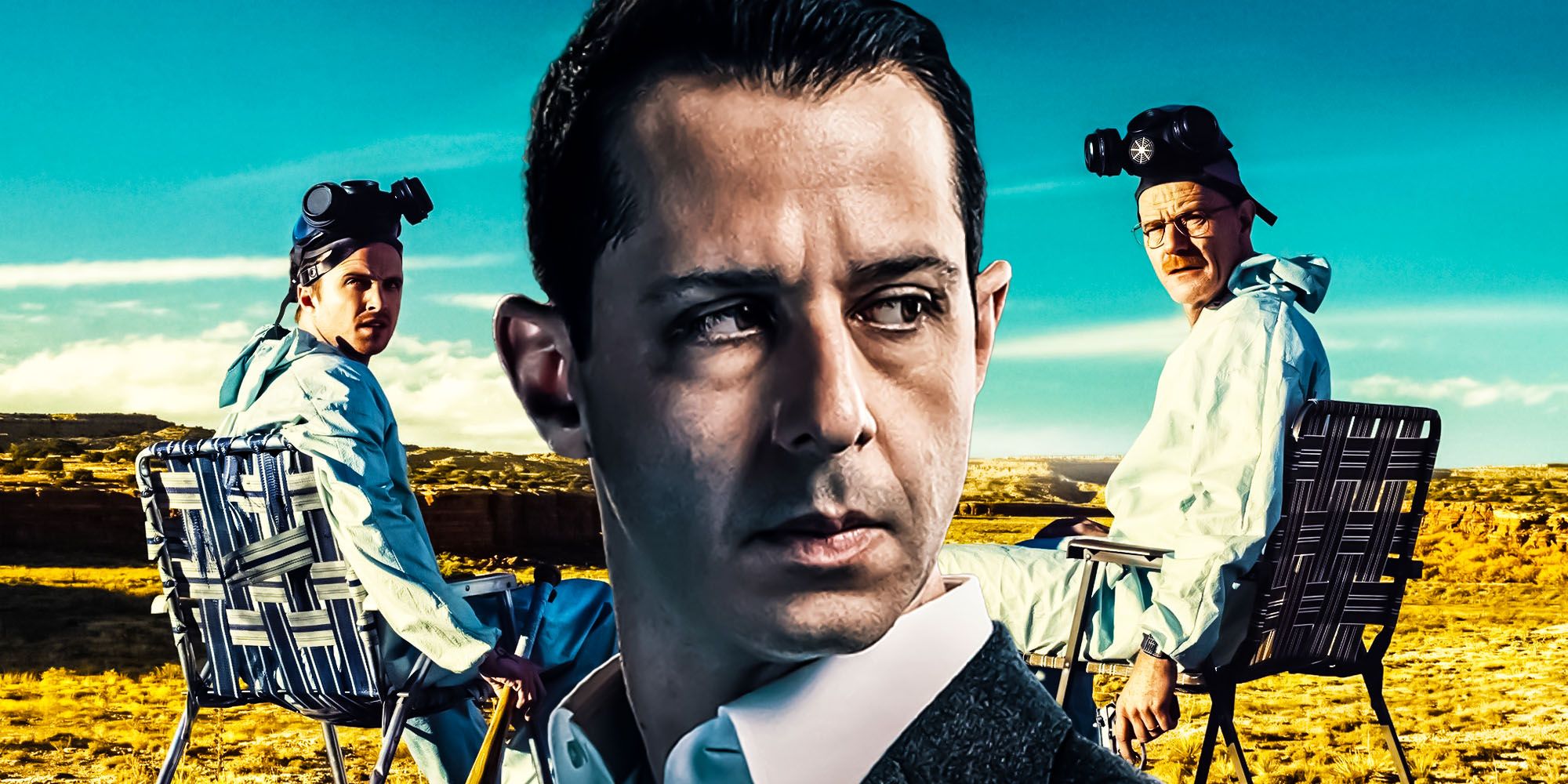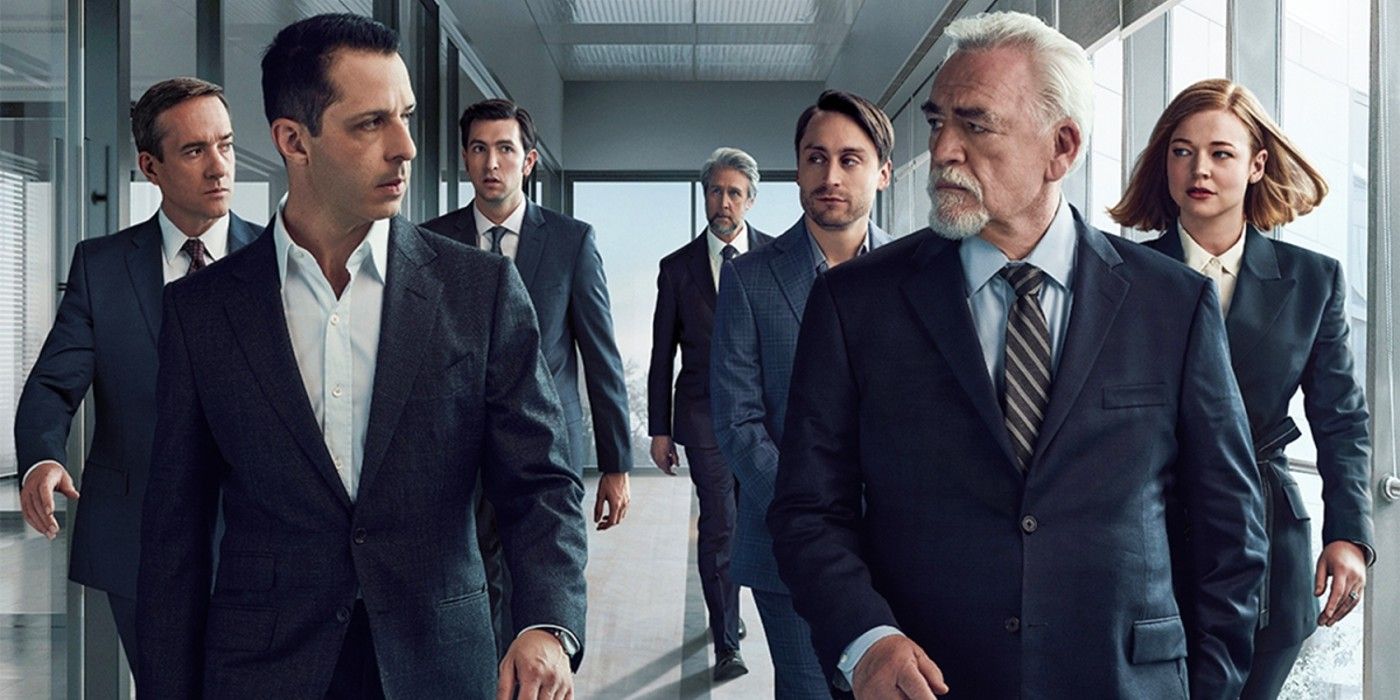Succession Is The Last Show Of The Breaking Bad Era | Screen Rant

Succession is a lone phenomenon of current feel-bad television from the Breaking Bad era, which is quickly being taken over by optimistic shows with the likes of Ted Lasso. HBO’s portrait of family, betrayal and cut-throat personalities is one of the most popular shows on TV, but stands alone as a massive hit that features no redeemable character and leaves viewers feeling arguably worse at the end of each episode. Succession is an enthralling premise with incredible characters, but it may be the last show of its genre in the Breaking Bad era of irredeemable protagonists.
Breaking Bad, which ran from 2008 to 2013, is arguably the most notable example of the “grimdark TV” era, a show specializing in amorality, violence, and darkness with nary a principled character. Alternate wildly popular and influential shows that fit in this category are Mad Men, Game of Thrones, and The Walking Dead. These series don’t give viewers an optimistic view of life, largely taking a nihilistic point of view emphasizing the negative aspects of society and loss rather than gain. The era of Breaking Bad and grimdark TV’s height is centralized in the mid-2010s, with Succession (2018-present) standing at the tail end of the genre’s prominence.
While Succession still looms large as a popular series, its genre of TV is being taken over by hopeful, optimistic shows in the fashion of Apple TV's Ted Lasso or Schitt’s Creek. Unlike the time when Breaking Bad monopolized television culture, there aren't many as many cynical and dark shows like Succession today, at least not nearly as many as there are Ted Lasso-like premises. The shows that are gaining in popularity emphasize the importance of hope, community, and kindness in society - the opposite of Succession’s appeal. Succession and Ted Lasso loom large in current TV culture, with their dichotomy providing an interesting look at the changing appeals of shows’ aesthetics and messages. That said, the Succession genre's waning attraction demonstrates that TV is now entering a “Ted Lasso era,” with the hopeful dramedy usurping the cynical drama/fantasy.

There’s a yin-yang symmetry to Succession and Ted Lasso as wildly popular modern TV shows, particularly in their reciprocal allures. Ted Lasso is geared at people wanting to see the best in others and an uplifting story, while Succession's Roy family plays at the more brutal, dark aspects of humanity that people realize are actually happening, but don’t want to be part of themselves. Ted Lasso is about inspiring viewers to be better people, while Succession makes viewers thankful that they’re not the characters while dreading that the Roys are the ones in power. Viewers crave the unity, friendship, and accountability of characters in Ted Lasso, but crave the cut-throat fights to the death and power struggles of Succession.
Coming out of a pandemic that has brought out the darkness and sadness of human nature in audiences’ personal lives, Ted Lasso’s massive yet divisive following seems to indicate that TV culture is moving towards a more positive and happy portrait of society to alleviate the overwhelming tension of the real-world climate. While the era of “hopepunk” shows seemed to be waning amid grimdark's early-2010s peak, there appears to be a resurgence of such themes today as it becomes more difficult to watch depressingly nihilistic dramas in one’s free time when there are already so many brutalities and divisive conflicts in the real world. It doesn’t mean that these themes aren’t present in real life, but that audiences are leaning more towards Ted Lasso-esque feel-good shows as mood enhancers and away from the irredeemable characters of Succession and Breaking Bad that make one feel worse - no matter how thrilling these shows may be. There will still be certain Breaking Bad and Succession-like shows that maintain a high level of popularity, but the genre won't be leading TV culture like before.
No comments: